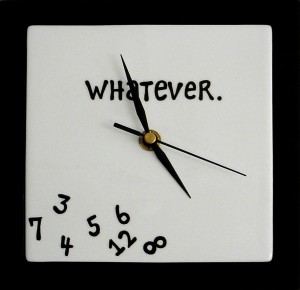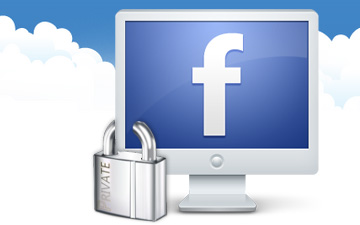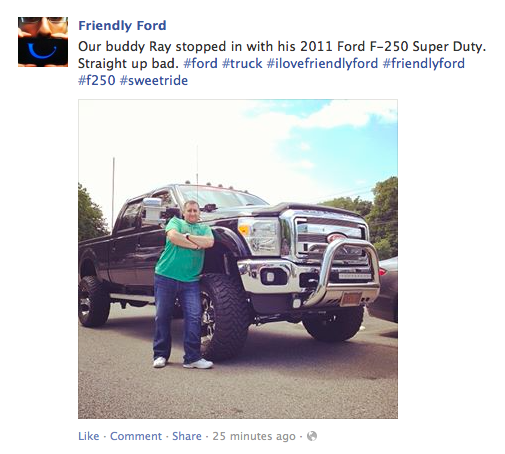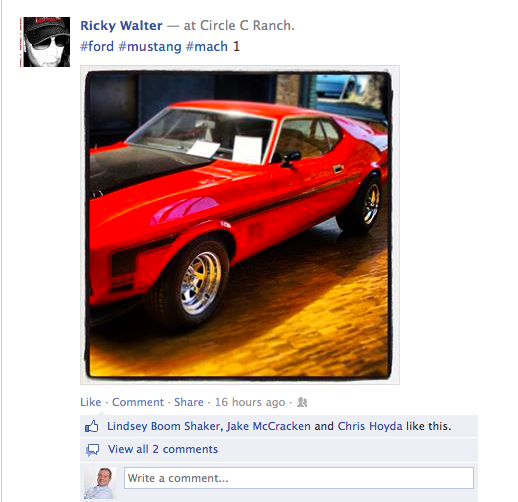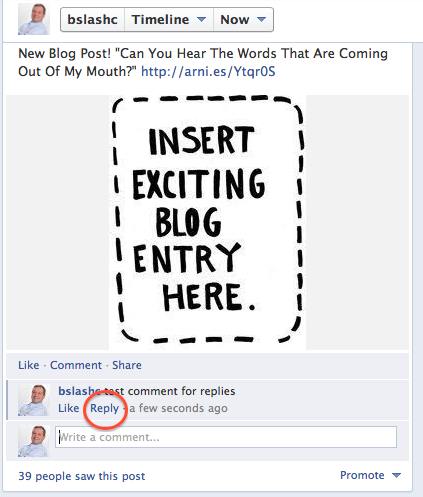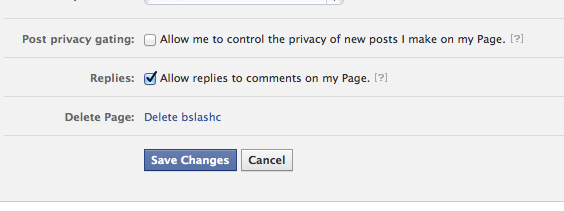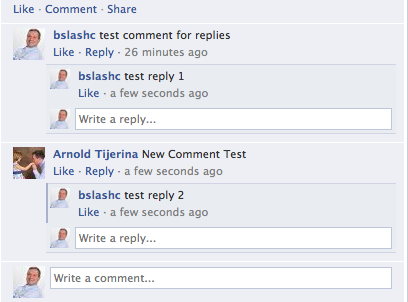 According to Business Insider, Facebook CEO Mark Zuckerberg announced today that Facebook is working on – finally – implementing a feature users have been clamoring for for years – the “dislike” button. In the interview, Zuckerberg explained that “what [people] really want is the ability to express empathy. Not every moment is a good moment” and that the addition of the dislike button was to allow users “an option to express feelings other than ‘liking.’”
According to Business Insider, Facebook CEO Mark Zuckerberg announced today that Facebook is working on – finally – implementing a feature users have been clamoring for for years – the “dislike” button. In the interview, Zuckerberg explained that “what [people] really want is the ability to express empathy. Not every moment is a good moment” and that the addition of the dislike button was to allow users “an option to express feelings other than ‘liking.’”
While his sentiment – and goals – are good, I believe that Facebook is about to open a big giant can of whoop-ass. This action could easily become the equivalent of opening Pandora’s box – or Face-mageddon.
Let me explain.
I get it. Someone posts about a death in the family, an illness, an injury or just a bad life experience. We’ve all seen those and hesitate to interact using the “like” button ‘cause who wants to “like” someone’s tragedy? Facebook’s thought-process probably followed the lines of “if we give users a way to interact with those types of posts in a way that shows empathy (as Zuckerberg said) then.. well.. people will interact with more posts… which gives us more data. Don’t think for a moment that every article you share, post you like, comment you make or status you interact with in ANY WAY isn’t translated into Facebook’s mysterious algorithm that determines what is shown to you in your news feeds. In addition, I’m fairly certain it is also integrated into your Facebook user profile data… permanently.
Here are a few scenarios in which a dislike button is bad:
Right now, Facebook can only tell what type of content you interact with. It doesn’t know your personal feelings about that content unless you comment in a positive or negative way. There is already software designed to automatically identify positive vs negative sentiment. With the introduction of a “dislike” button, Facebook will now be able to better understand how you FELT about the content, not just the fact that you interacted with it.
Why is this important?
Let’s look at things that people post on Facebook… sports, religion, politics, guns… all things that could be very polarizing or controversial topics. We’ve all seen posts turn into bitter arguments. Heck, one of the most popular memes has got to be this one:
We love us some drama. Don’t deny it. How many reality shows exist again? Facebook is like one huge reality show except the actors are actually people you know.
Back to that list. Let’s go with the easy one first… sports. Are you a fan of (insert team name here)? If not, every time your friends post something positive about that team, you may feel inclined to hit that “dislike” button. Not only will this probably annoy your friends (especially if the “dislikes” outweigh the “likes”) but now Facebook knows that you more than likely do not like (inserted team). How will your friends know that you disliked their post? Well, you can already view the people that “like” your posts so I would guess it’s safe to assume that you’ll also be able to view the people that “dislike” it as well.
You see where I’m going? Religion. Politics. Gun Control. Gay Marriage. Kim Davis. Abortion. Hunting. Confederate Flags. Prayer in schools. Civil rights. Whomever’s Lives Matter (this week), Legalized drugs, Immigration Policies… this list could continue but I think you get my point.
Not only does a “dislike” button offer the option of inserting a passive-aggressive “vote”, if you will, on the subject matter rather than chiming in but it can also provide valuable data about YOU to Facebook. Instead of being forced to actually GIVE your opinion on a controversial topic, now you’ll simply be able to click a button and subtly share that opinion. I can’t wait to see friend’s calling other friends out in comments such as “Hey [friend], why’d you dislike this? You suck!” etc.
What about (God forbid!) someone “dislikes” something your BUSINESS (i.e. Facebook page) posts?
It’s really a pretty genius move on Facebook’s part. Its users have been asking for this forever… so now they’re giving it you them… and they can collect more data, keep you on Facebook longer and provide you with more content you like. Once it figures out you don’t like [insert team name, political figure, movement, etc here], it simply won’t show you that content any longer. Facebook will become a happy place full of Skittles, unicorns, puppies and motivational quotes… unless, that is, you don’t like Skittles, unicorns, puppies and motivational quotes. You know all of those “I’m going to flood Facebook with cartoon pictures to drown out all of the negativity” posts? Well, now you won’t have to anymore ‘cause Facebook will be your personal screener. Sort of like that poor guy who gets to taste all of the king’s food before the king eats it to check to see if it’s poisoned.
Perhaps advertisers will soon be able to start targeting “People who don’t like Donald Trump” or “People against gay marriage.” Even scarier is how ELSE could Facebook monetize this data. Can you imagine a world in which employers, insurance companies, government agencies, etc. could access this information? I can. And no, I’m not a paranoid conspiracy theorist. What I am, however, is a realist. Facebook is a public company that needs to find ways to monetize itself. It does that mainly through Facebook ads at the moment. That being said, we all know that data is money… and we certainly give it data. Lots of it.
Now they’ll be able to combine CONTEXT with ACTIONS and that’s a slippery slope into creating a more perfect data profile of a user which, of course, allows them to, at the very least, open up new ways for advertisers to better target their audiences. You better believe that Facebook will – and already is – keeping track of everything you do on it’s site. I’m sure that buried someplace in some Terms of Service document, by using Facebook, you’ve given them ownership of the data they collect about you. Now they’ll just get better insight (cough.. data) into your thoughts and beliefs as well.
Like one friend of mine said when I posted the article this blog refers to in the beginning, “ Oh, it’s about to get fun again.”
Yes, it is.




